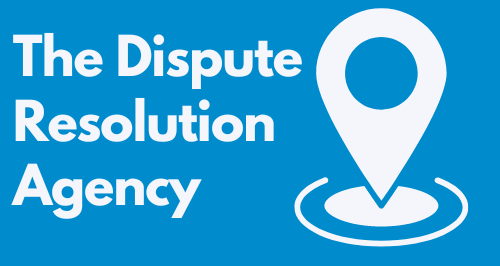WHAT IS MEDIATION AND HOW DOES IT WORK?
What is Mediation?
Mediation is a neutral and impartial form of resolution. It is provided by a professional Mediator who has been trained to help the parties work through conflict and towards an agreement. See our information about conflict here.
How does Mediation work?
Mediation empowers you to make lasting decisions and agree outcomes that work for you. Your Mediator will remain impartial and facilitate your conversation to help you work towards agreement. This is an ideal form of dispute resolution for matters where the people involved want to retain an ongoing relationship, avoid court, and keep the dispute and outcomes strictly confidential.
Exploring issues and fact finding with your Mediator
Your Mediator will work with you to find out what the issues are and what everyone's intentions are for moving forward. Each person will have an initial call with your Mediator, which may be up to 30 minutes in length. Everyone will need to agree to proceed before the mediation session can be arranged.
Agreement to use mediation and preliminary arrangements
Once everyone is agreeable to use mediation, your Mediator will need to ensure that you have each:
- signed an Agreement to Mediate and provided them with any documentation or items to review ahead of the session.
- paid the invoices before commencing the mediation
- shared documents and any evidence to reference
- agreed the date and timings for your mediation session
Please note that payments are usually made before the mediation session. The mediation fee is usually split equally between the parties but there may be other arrangements by agreement.
The structure of mediation
- Length: The mediation session could be as short as two hours or a full day at eight plus hours.
- Structure: The day will be structured to allow each person to share their issues and aims, and for discussion around next steps and outcomes to be considered.
- Location: Your mediation session can be held in person at a venue which is central to you and the others involved, or it can be facilitated online.
What does a Mediator do?
Your Mediator will help you by listening to each person's views and concerns, and rephrase responses where emotion may be taking centre stage.
A Mediator has been trained to be the person in the middle and allow you to have a conversation, share what's important, and help you think about how you can fix the situation.
The benefit of working with a Mediator is that everything is confidential and you will have a safe space to talk and share not only what brought you to this point but what your vision of a better future could look like. They will empower you to make your own decisions and support you to sense and reality check suggested outcomes.
At the end of the mediation, your Mediator will put your agreed terms into a document that you can sign. This is called a Mediation Agreement and is legally binding. For additional peace of mind, you can protect this agreement by going to court and applying for a Consent Order or Tomlin Order.
Do I need to see the other party at Mediation?
Mediation is always best when you can have a direct conversation. However, your Mediator can facilitate a shuttle only mediation. This means that your Mediator will only hold individual sessions with each person and work towards an agreement without any direct communication. Talk to your Mediator about shuttle mediation and if this is something that might benefit you.
What happens if we don’t reach an agreement?
In some rare circumstances an agreement is not reached. However, you will find in most situations that you will have made progress. Mediation is a balance of training as well as neutral support and most people take away some vital skills about how to talk and reach an agreement. It is thought that approximately a further 10 per cent of matters settle shortly after the mediation.
If you cannot reach an agreement, you may need to consider other options. These could include seeking legal or other professional advice. You can discuss your next steps if this is necessary but if everyone genuinely wants to resolve the matter, you have a very good chance of reaching an agreement.
How much does mediation cost?
Mediation is professional service that members of The Dispute Resolution Agency usually charge on an hourly basis. Some practitioners offer fixed fees, reduced fees, and some can help for free.
Each person usually pays their own costs on an equal basis but other arrangements can be agreed in advance.
Complete our online form below and we'll find the right professional for your needs.

